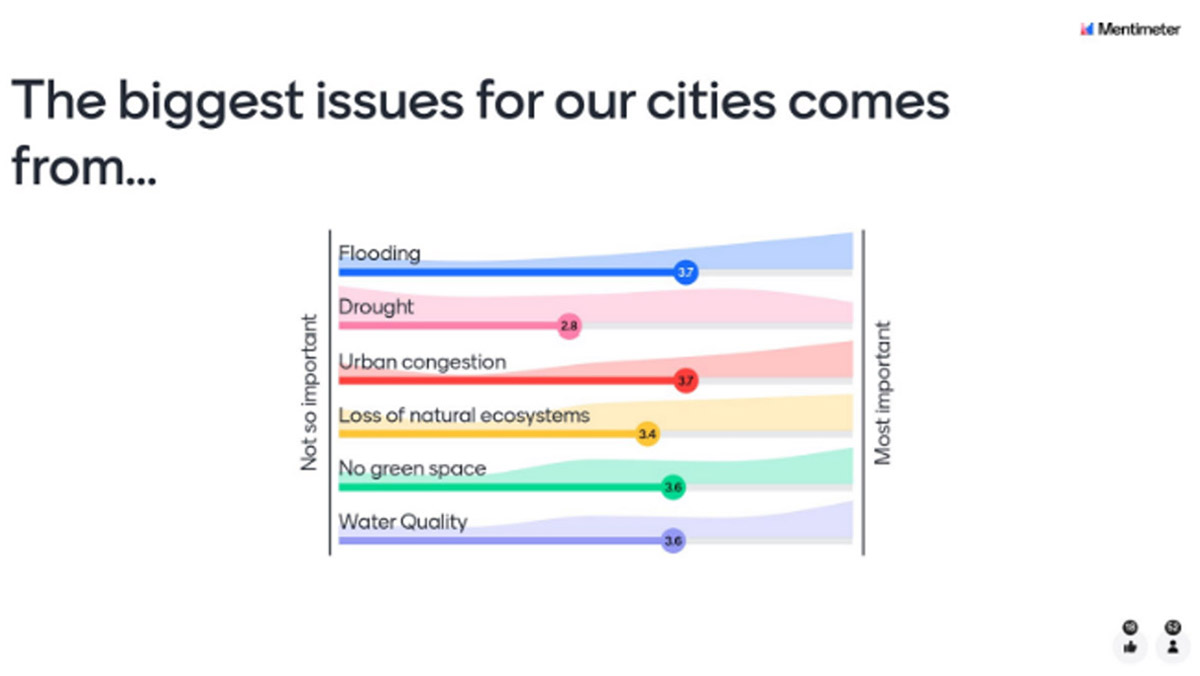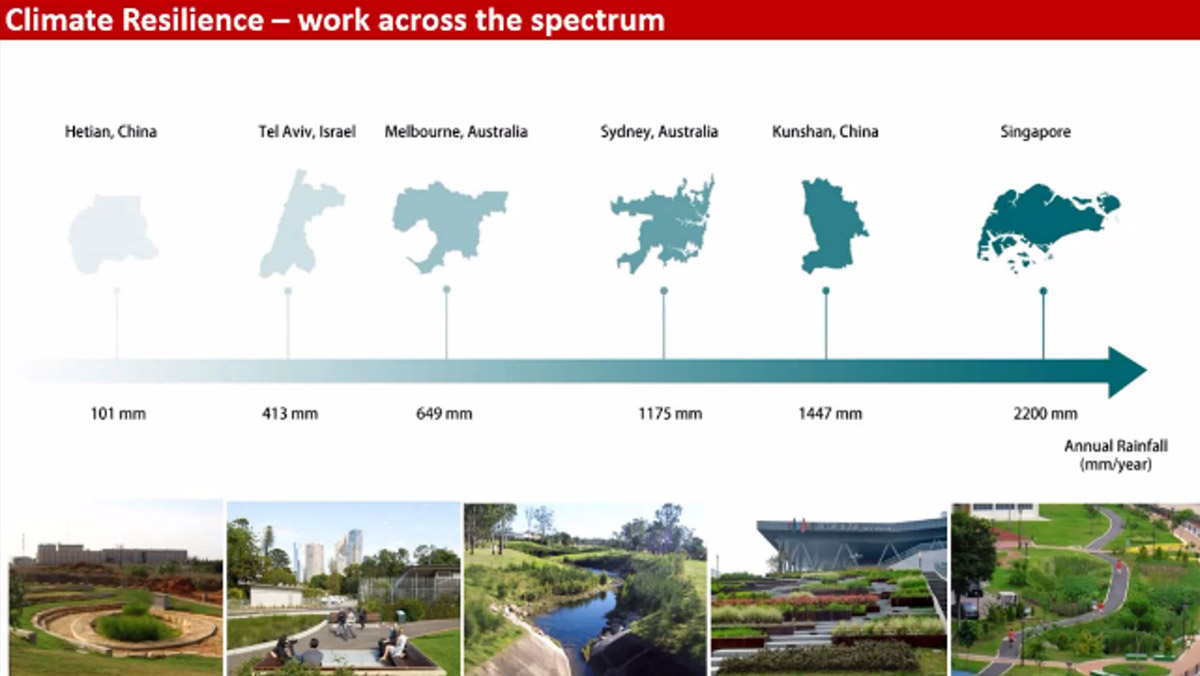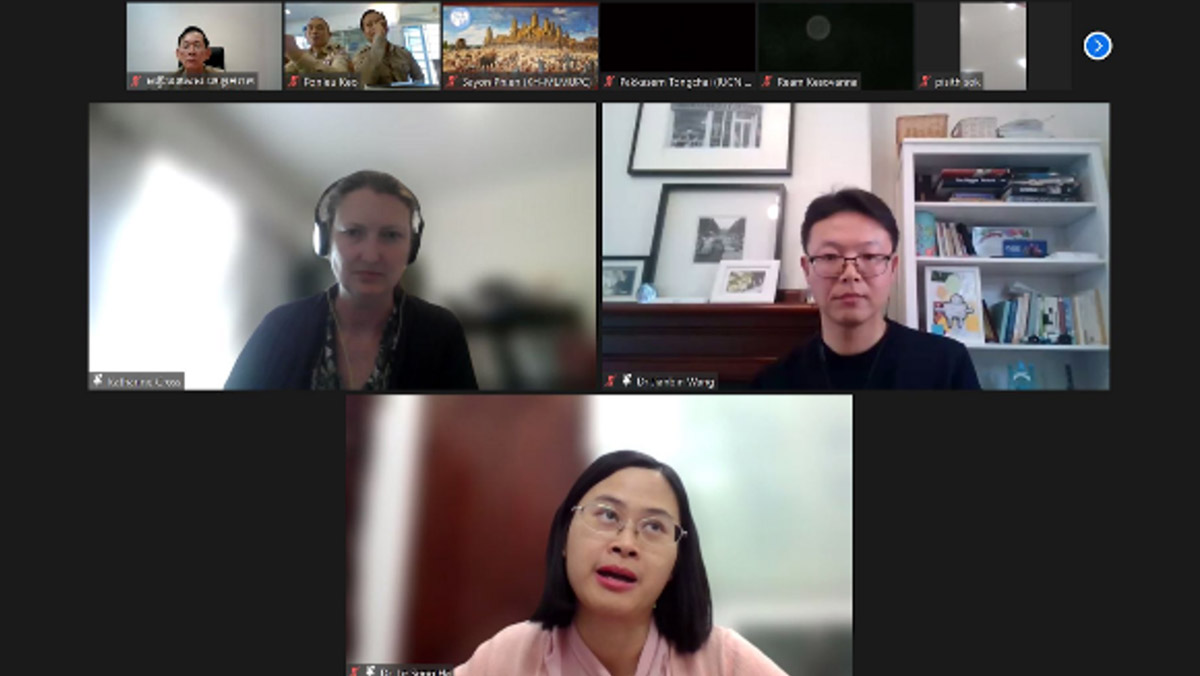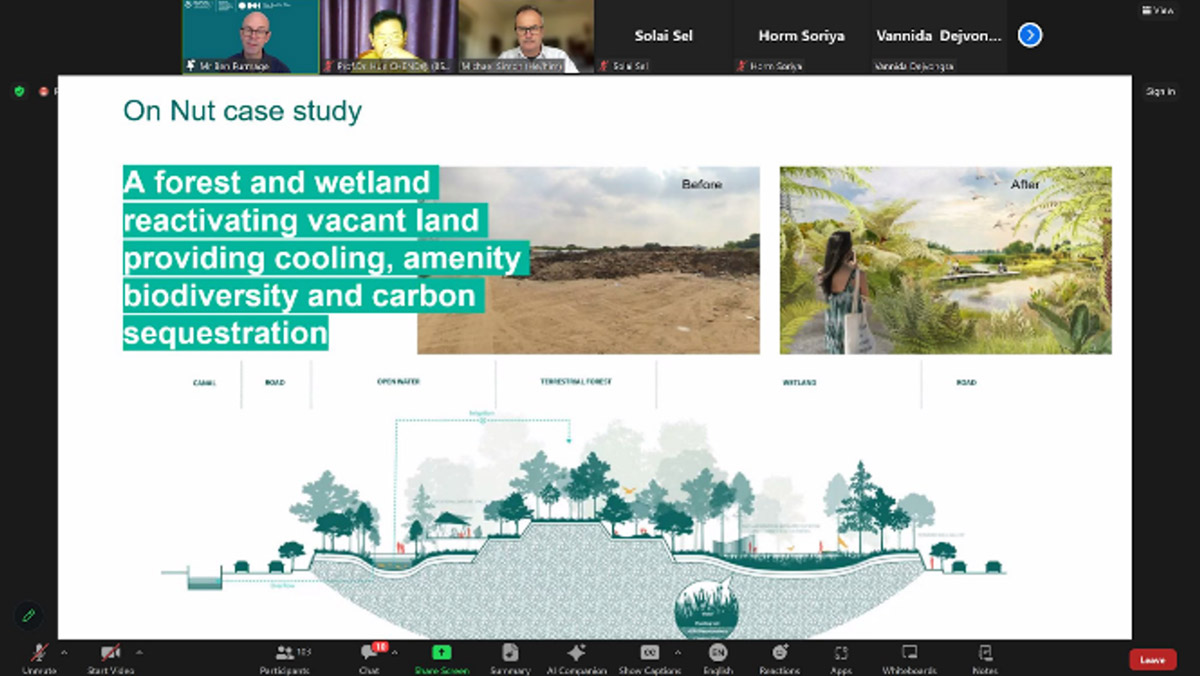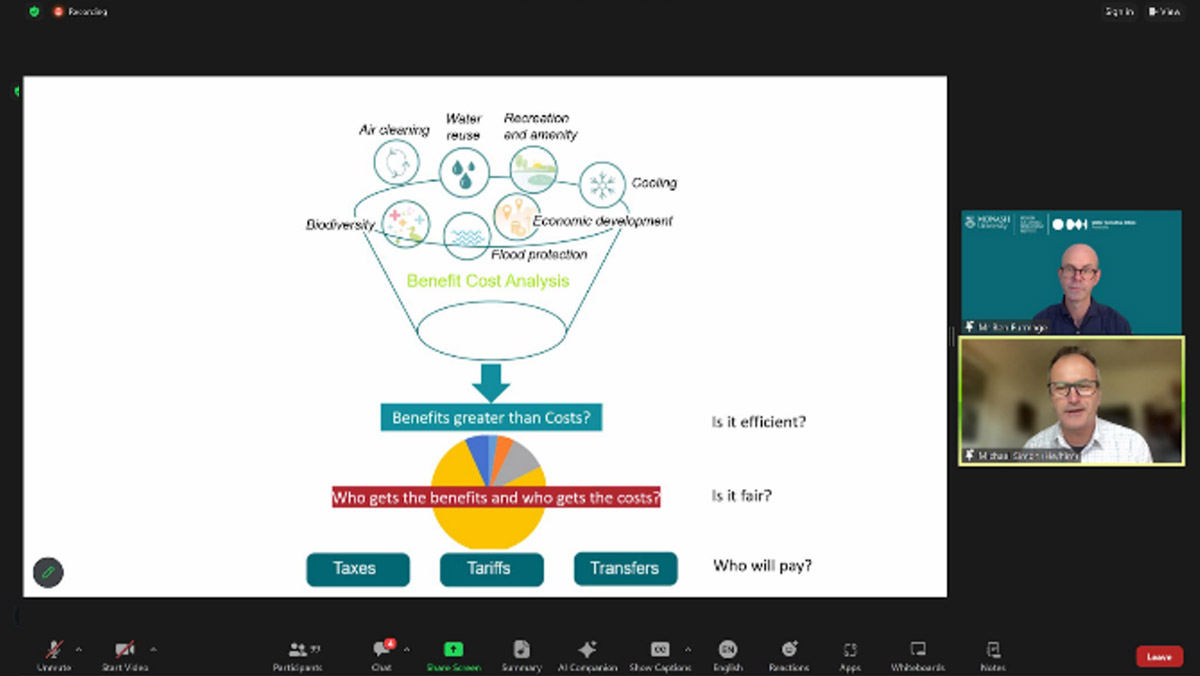A major highlight for the RUCaS team in 2023 was the Regional Conference and Training, held over 4 days in November.
The conference (14–15 November 2023) aimed to share current knowledge about nature-based solutions (NbS) and their role in addressing issues facing urban areas in the greater Mekong region, introduce the case studies being conducted as part of the RUCaS program and help build the connections that underpin a community of practice and broader NbS application.
The conference was a combined in-person (via a hub in Bangkok) and online event, with simultaneous translation in 5 languages. It was co-hosted by the Thai Government Department of Climate Change and Environment and included the following sessions:
- It opened with a welcome from Dr Gemma Edgar, Counsellor (Development) from the Australian Embassy in Bangkok and Mr Pavich Kesavawong, Deputy Director General, Department of Climate Change and Environment at Thailand’s Ministry of Natural Resources and Environment.
- The keynote address from Professor Tony Wong (Professor of Sustainable Development, Monash University) highlighted the problems rapid urbanisation and climate change create for urban areas, and how NbS and hybrid infrastructure can be used to support the most vulnerable in our communities at a range of scales.
- The high-level panel from 4 Mekong countries – Cambodia, Lao PDR, Thailand and Viet Nam – highlighted the importance of collaboration and cooperation in addressing the challenges the region faces. Activities must focus on building awareness and understanding of NbS among policy makers and practitioners, and on engaging with the community in design and implementation.
- The panel of practitioners from each country shared their ideas on ways to further advance use of NbS in the region, including developing policies and guidelines for practitioners, increasing awareness and understanding of NbS among decision makers, identifying standardised measures of success, engaging with affected groups (particularly vulnerable groups), and creating economic opportunities for affected communities.
- In breakout sessions, participants explored the issues and opportunities associated with applying NbS in their countries.
- Dr Jeremy Carew-Reid (ICEM Director General) shared his final reflections on the conference discussions, such as listening to local communities and understanding their needs, incorporating NbS into city plans, rewarding people for working together.
Training the following week (21–22 November 2023) aimed to consolidate the concepts introduced at the conference and build the capacity of country policy makers and practitioners to design, assess and apply NbS and GEDSI (gender equity, social inclusion and diversity) approaches.
- Day 1: Identifying urban nature-based solutions fundamentals – This session introduced the foundational concepts and examples of NbS e.g. raingardens, constructed wetlands, stormwater harvesting and wastewater recycling, and explained how they can be used at a range of scales – lot scale, street scale, corridors, catchments. The On Nut Waste Transfer Station in Bangkok was used to demonstrate how NbS could be adapted and applied in practice.
- Day 2: Evaluating options and building the case for action – This session introduced the basics of economic analysis and benefit–cost analysis – what it can and can’t do, how to define the project and establish the baseline, why timeframes are important, what are the common traps and useful tips. Again, these concepts were then applied in practice, using the On Nut example. This training also addressed the question of determining what is fair, particularly in relation to vulnerable groups who are often not considered, and whose interests and rights can be missed or overlooked in economic valuations of projects. The session emphasised that engaging with all stakeholders should be done throughout the project development cycle, and even more importantly at the options assessment processes – before decisions are made to proceed with projects.
Together, the regional conference and training attracted 460 attendees, with 330 attending online:
- Females accounted for 37% of online attendees for the conference, and 36% of online attendees for the training.
- The largest group of online attendees came from the government sector (37% for the conference and 42% for the training.)
- Feedback from both the conference and the training was positive, based on survey responses:
- 85% of respondents gave the conference a rating of 8 or more out of 10.
- 72% of respondents gave the training a rating of 8 or more out of 10.
- Sessions were delivered in English or national languages, with interpretation available in 5 languages.
Supporting integrated urban water management in Thailand’s Eastern Economic Corridor
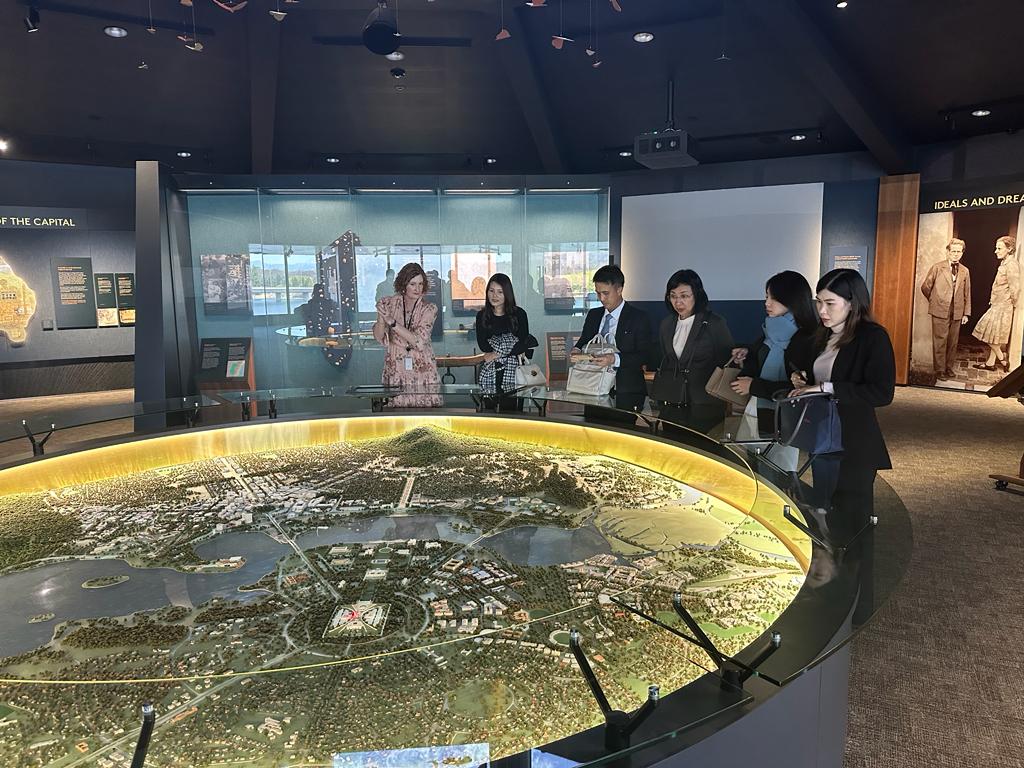
Get the run down on the RUCaS Regional Conference and Training, held over 4 days in November 2023
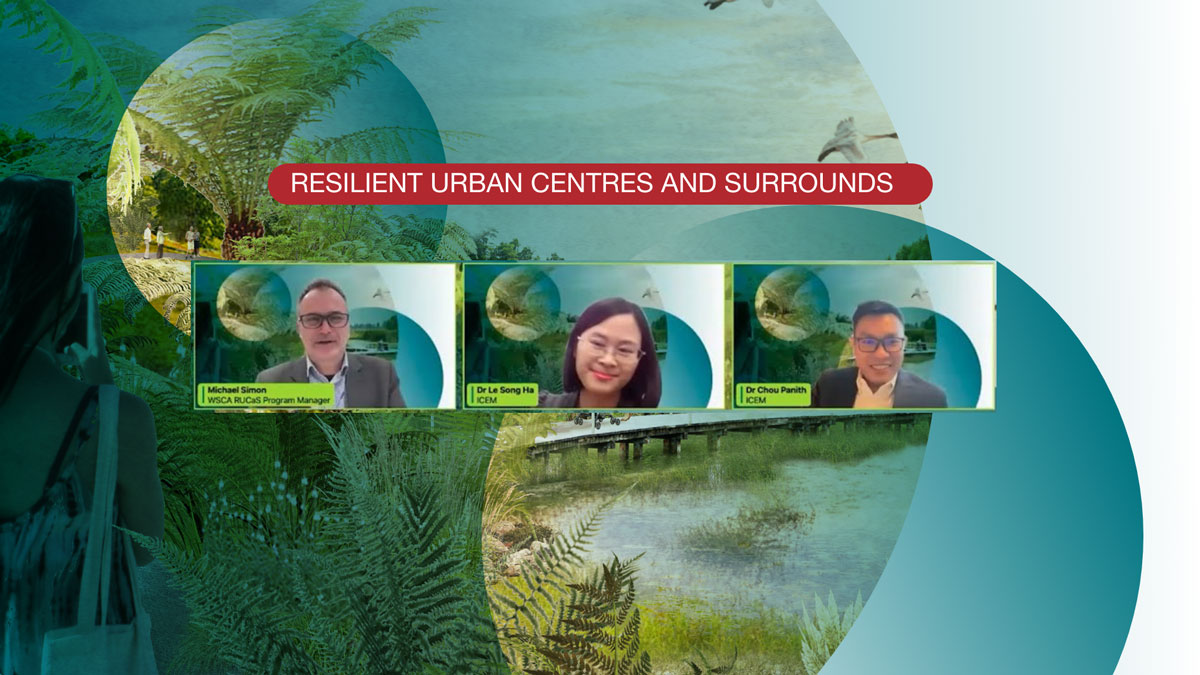
Improving climate change and water security outcomes for peoples with disabilities
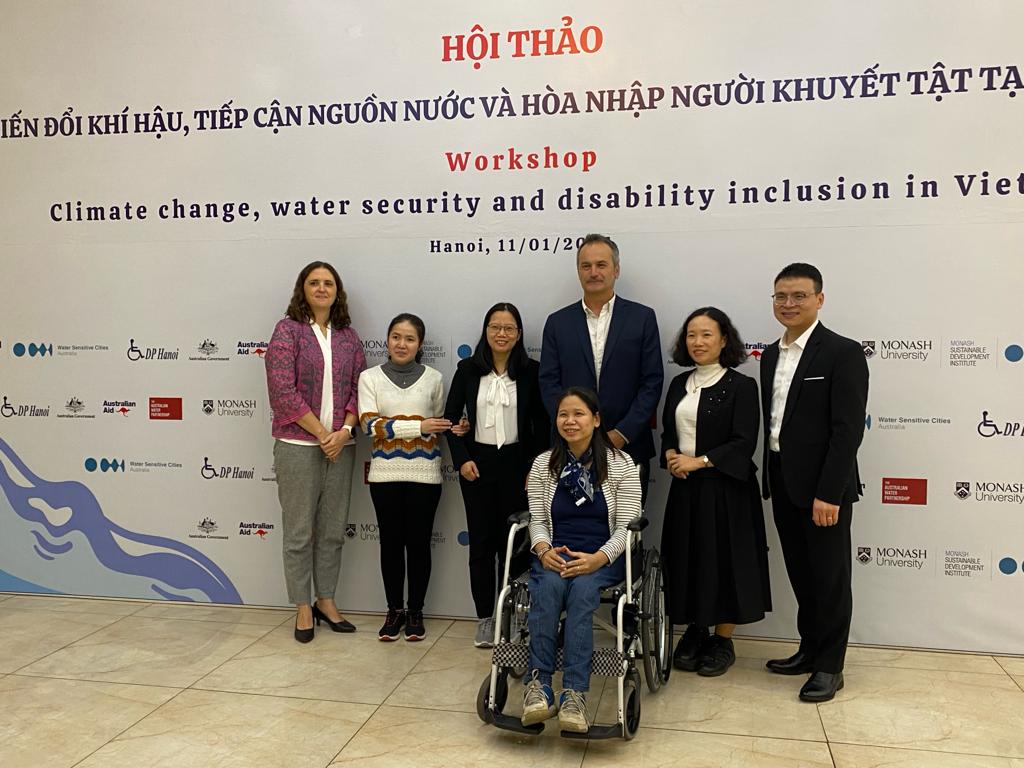
New faces at Water Sensitive Cities Australia


